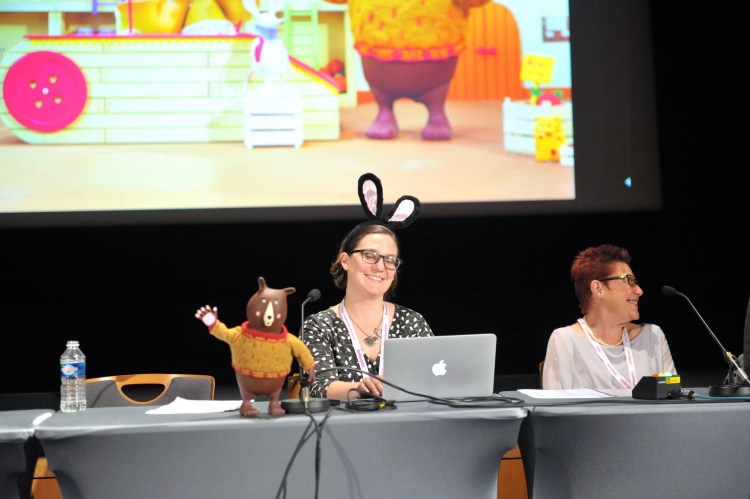TOULOUSE, France — The worlds of digital animation and video games have become increasingly popular over the past decade. But the intersection between these two forms is also growing, making it more difficult to tell where one ends at the other begins.
That growing dependency and transformation was on display this month at the annual Cartoon Forum, a prestigious event where animators from all over Europe come to pitch their ideas for TV series to potential buyers.
This was the 26th annual event, and the fourth year in a row that it was held in this southwestern French city. It’s the perfect barometer of an animation boom across Europe, much of it driven by the use of digital tools.
This phenomenon challenges the conventional wisdom that Europe in general, and France, in particular, have been slow to embrace the digital future.
Though it hasn’t gotten loads of attention, yet, Europe is at the center of the digital animation revolution. Publicly, the region tends to be overshadowed by U.S.-based Pixar and DreamWorks, which regularly pump out the big blockbusters.
Indeed, a recent report commissioned by the Europe Union noted that in the categories of animated films, Japan made 110 animated films between 2010 and 2014. The U.S. was next with 109.
But France on its own was third, with 47 animated films over that same period. Throw in the rest of Europe, and the numbers are about even.
In the case of France, that number doesn’t count what are probably its hottest digital animation products: the Despicable Me and Minions movies. Yep, they’re made in Paris by Illumination Mac Guff studios, which was bought a couple of years ago by Universal. Technically, then, they are U.S. productions, even though they are made in France.
The Cartoon Forum focuses on TV series, where the growth across Europe has been just as dramatic. At the first Cartoon Forum, there were 43 animators. This year, 900 animators arrived from across Europe to pitch 85 new series.
Within that explosive growth, Cartoon Forum organizers noted that 55 percent of these new series come with some kind of transmedia component, such as a video game or a mobile app. That’s up from 37 percent just last year.
And among the attendees this year were representatives of several gaming companies, including Ubisoft.
Several animators I talked to during the event said the video game component was part of the conversation from the very beginning.
Amaury La Burthe, chief executive officer of Toulouse-based AudioGaming, said his company had been working from the start with the creators of a new series called Ibinou. In the series, an animated explorer takes pictures of wildlife and teaches young kids about the animal’s habitats and biology.
La Burthe said there would be an app and a game to go with the series so kids can continue to explore the content even further.
Tous avec @AudioGaming pour la présentation d'Ibinou #cartoonforum #pinkroom pic.twitter.com/LUCb06IKTZ
— Tataragne Interactive (@tataragne) September 17, 2015
Another of Europe’s quiet successes has been Ankama, a video-game company with 500 employees that is based in Roubaix, near the Belgian border. The company has moved past its video game beginnings to start producing its own animated series.
Last year, as Netflix was preparing to enter France, the company inked a deal with Ankama to stream its fantasy-action series WAKFU around the world. That ability to reach international audiences thanks to streaming has made animation even more attractive, according to Olivier Comte, Ankama’s chief operating officer.
And finally, though it doesn’t have a game or app, it’s also worth noting the winner this year of the Cartoon Forum’s annual Cartoon d’Or award for best animated short film in Europe. The jury selected a short called The Bigger Picture, that was made in the U.K.
Aside from its visual inventiveness, which combines digital animation and life-size sets in the real world, the film is also interesting because it was funded in part by a Kickstarter campaign that raised almost $50,000. Not bad for a short animation that was also nominated for an Oscar and BAFTA.
For the moment, it’s quite likely that Europe’s reputation in the world of tech is going to continue to be colored by its clashes with U.S. companies like Uber, Facebook, and Google.
But while animated films, TV shows and web series may not be as headline-grabbing as billion-dollar IPOs, they still serve as an example of how the region has embraced the future with enthusiasm and creativity.
VentureBeat's mission is to be a digital town square for technical decision-makers to gain knowledge about transformative enterprise technology and transact. Learn More

